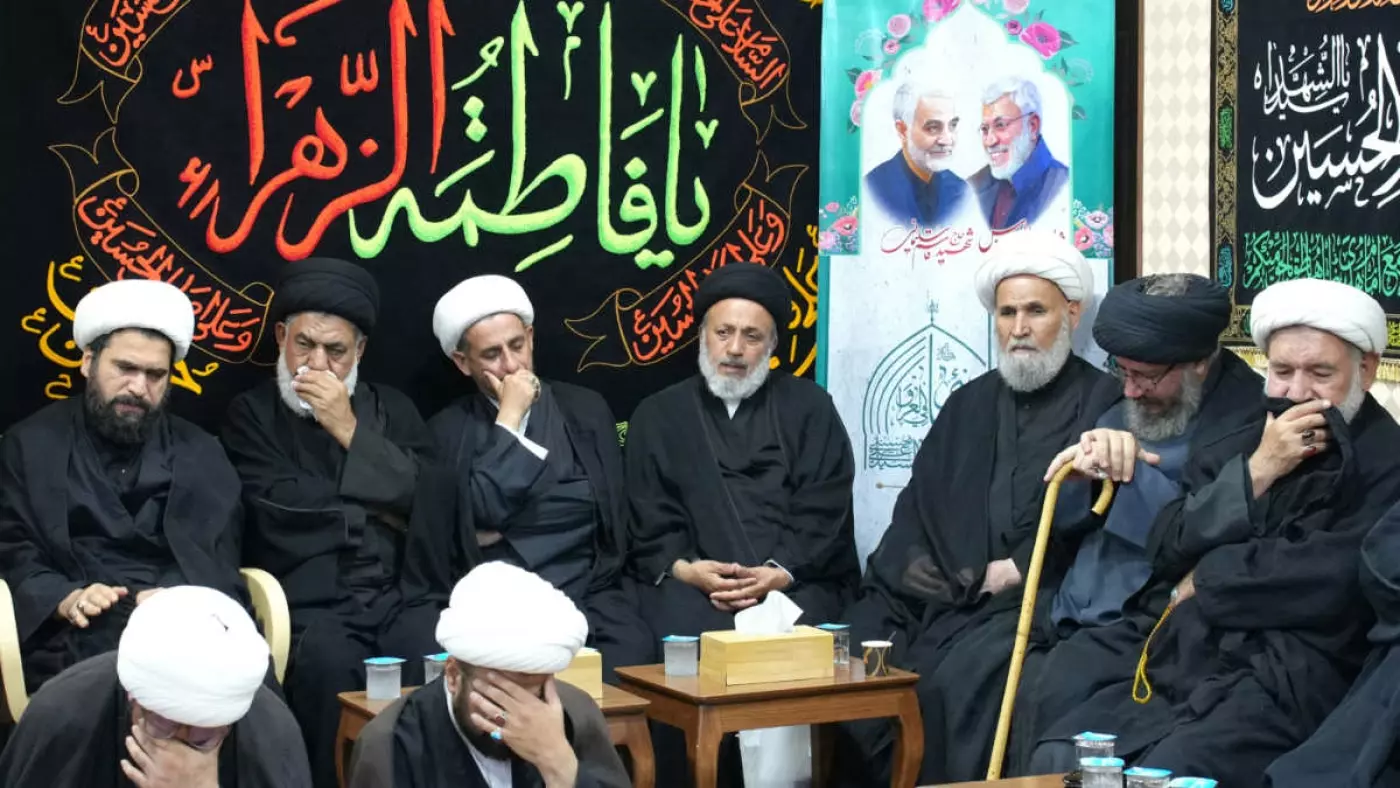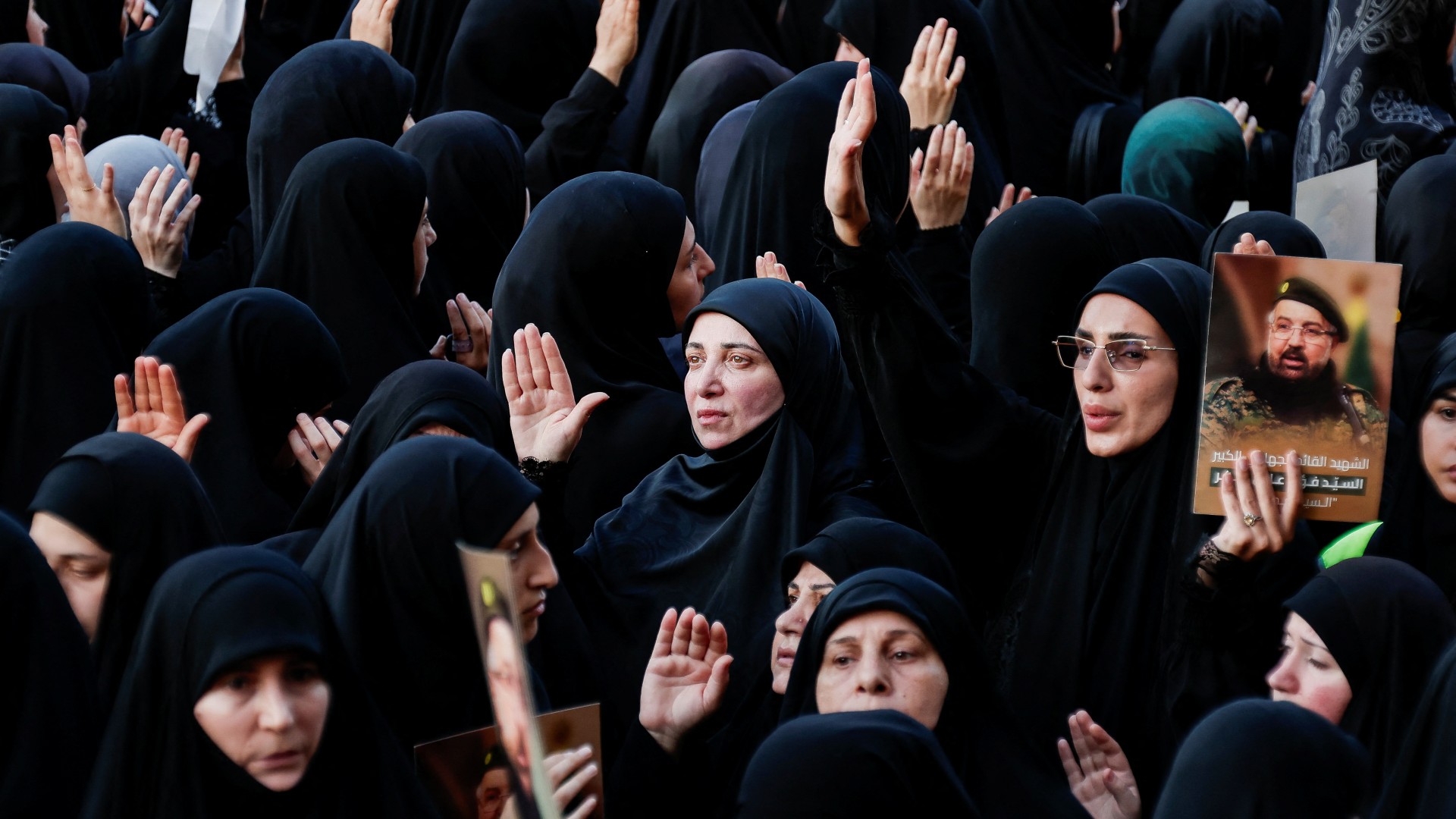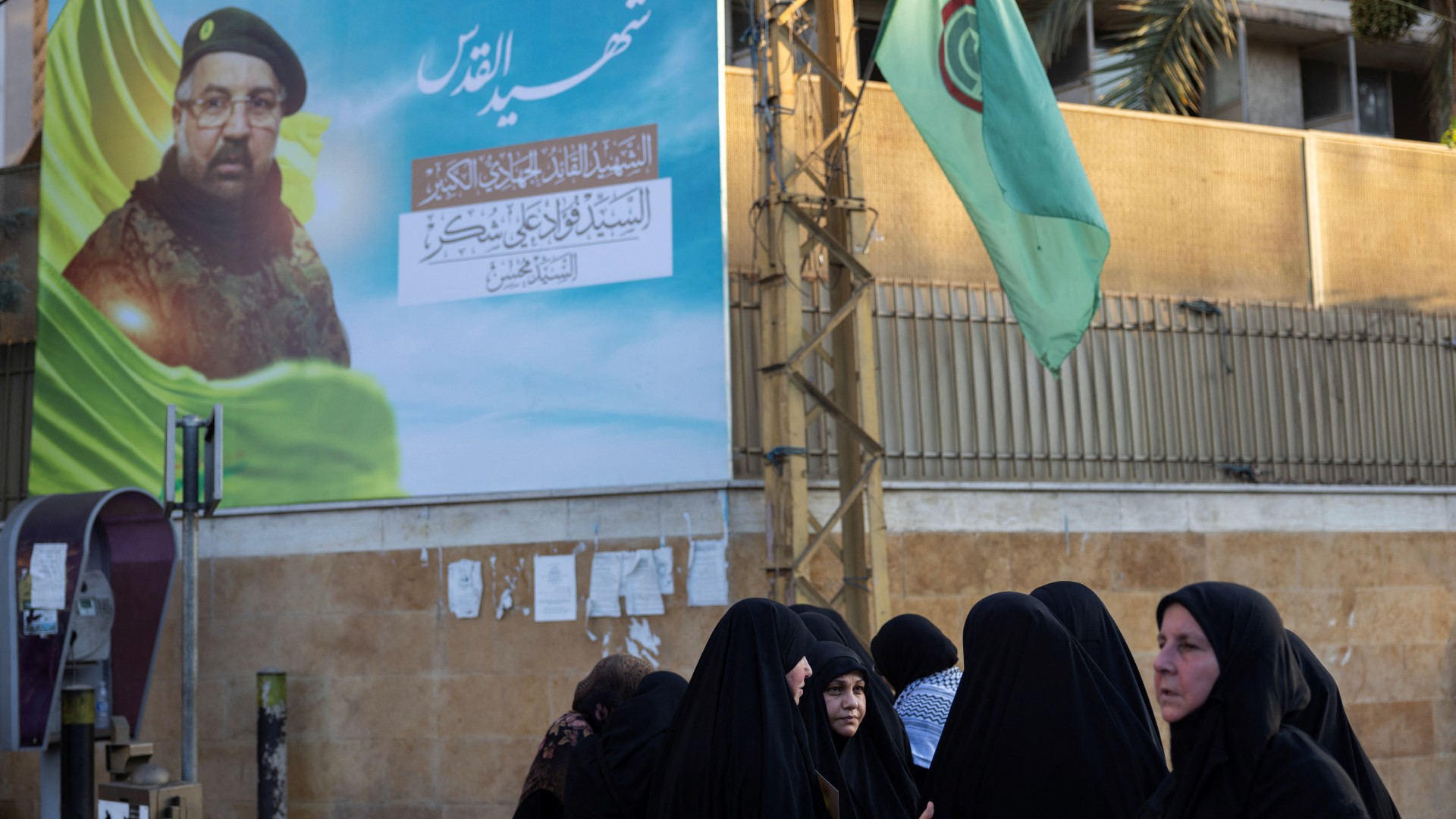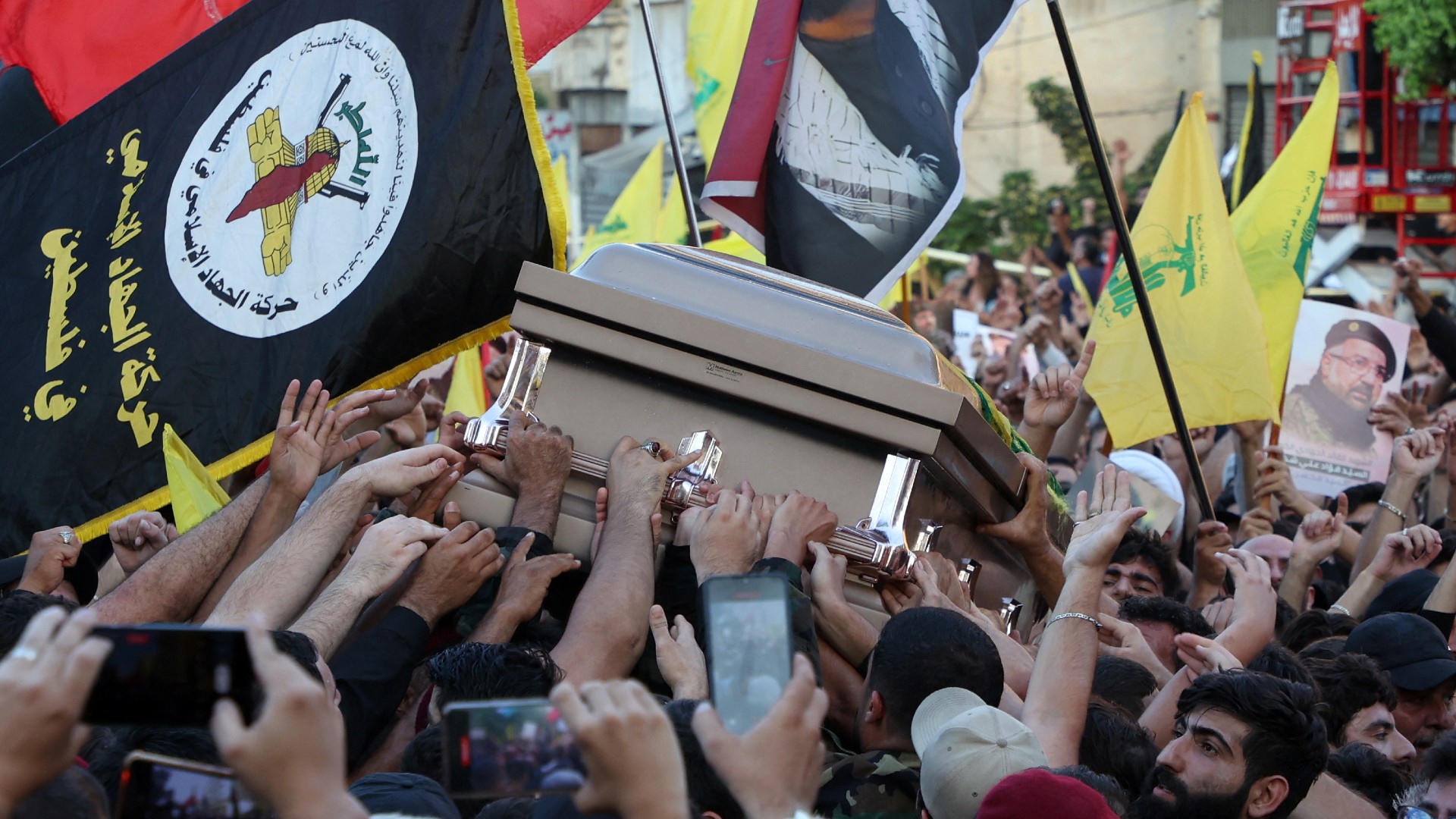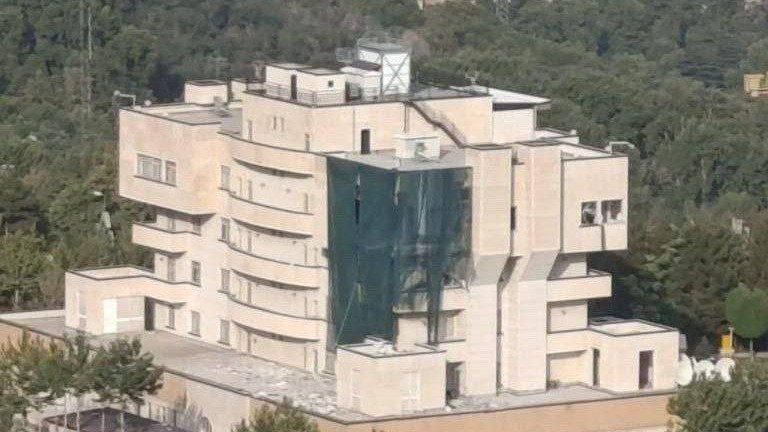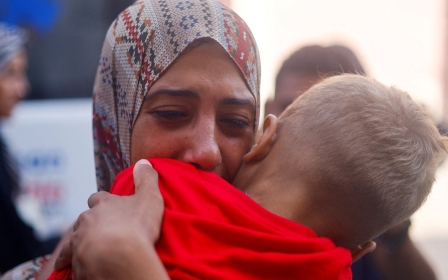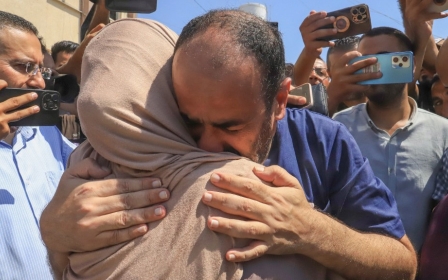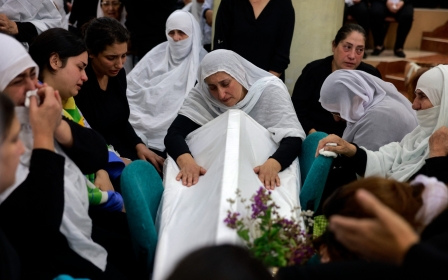Gaza live: Israel strike kills 30 Palestinians, mostly children
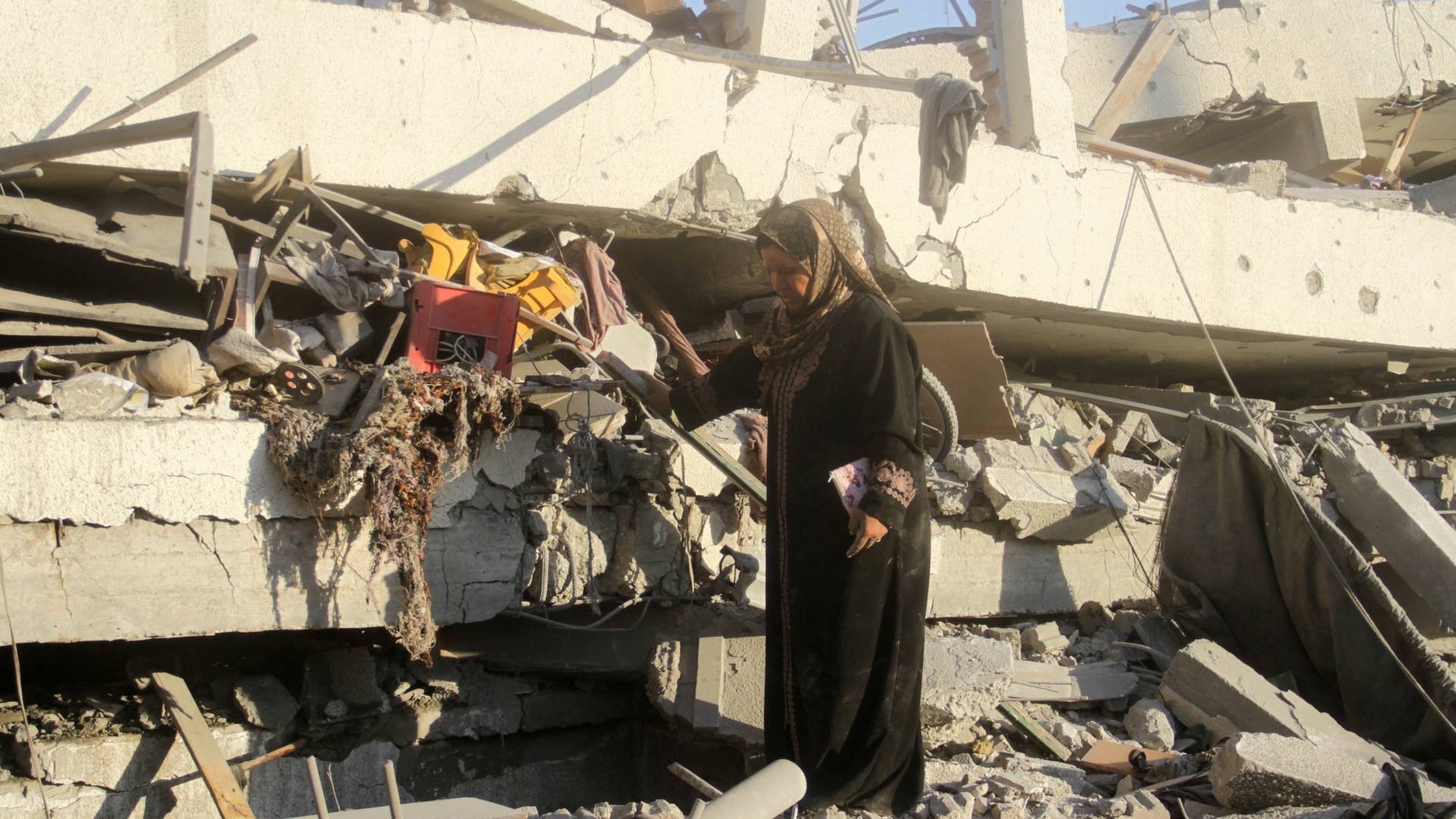
Live Updates
At least four people have been confirmed dead after an Israeli military strike targeted an apartment building in Gaza City, according to local media.
Earlier the Palestine Red Crescent Society reported that several "martyrs" were recovered from the rubble of the apartment, which was owned by the Abu Hashem family and located on al-Jalaa Street in Gaza City.
Sweden's foreign ministry announced that it is tightening its travel advice for Israel and Palestine due to the "serious" security situation in the Middle East, which "could quickly get worse."
"From now on, all travel to both countries is strictly advised against," the ministry said in a social media post shared by Swedish Prime Minister Ulf Kristersson.
Similarly, Slovenia’s ministry of foreign affairs said that "due to the situation" in Israel, "we advise against all travel for security reasons."
"There is the risk of rocket attacks from Lebanon and Gaza and the possibility of an escalation of tensions. The danger of attacks and threats from Iran has increased," the ministry added
Good morning Middle East Eye reader,
Here are the latest updates from the Israeli war on Gaza, now in its 301st day:
-
The Palestinian death toll since 7 October stands at 39,480, with more than 91,128 wounded and an estimated 10,000 missing, likely dead and buried under rubble
-
Israel has carried out 3,457 "massacres" since the start of its war on Gaza in October of last year, according to a report published on Thursday by Gaza's government media office
-
At least 15 Palestinians have been killed and 40 wounded by an Israeli strike on a school sheltering dozens of displaced families in the Gaza City neighbourhood of Shujayea
-
Turkish President Erdogan has told US President Biden that Israel does not want a ceasefire in Gaza and Haniyeh’s killing “dealt a heavy blow” to peace efforts
Our live coverage from Gaza will shortly be closing until tomorrow morning.
Here are some of the day's key developments:
-
Death toll in Gaza climbs to 39,480 as Israeli bombing continues
-
Israeli settlers stormed the Al-Aqsa mosque in occupied East Jerusalem, under the protection of Israeli police
-
Hezbollah leader Hassan Nasrallah has said that the "only solution" to the escalating tensions between the group and Israeli forces is to "end hostilities in Gaza"
-
Israel has turned into a "rogue" state with its assassination of Ismail Haniyeh and needs to be stopped, Jordanian Foreign Minister Ayman Safadi said
-
Hamas leader Ismail Haniyeh was assassinated by an explosive device that was secretly smuggled into Tehran weeks ago, according to a report in the New York Times on Thursday
-
Retaliataion against Israel is 'inevitable', Hezbollah chief Nasrallah says
-
Iran and several Tehran-backed groups are reportedly preparing a coordinated retaliation meant to deter Israel but avert all-out war
-
Aljazeera denies claims that killed journalist was Hamas member
-
Hezbollah said it launched dozens of rockets on northern Israel Thursday in response to the killing of top military commander Fouad Shukr earlier this week
The US anticipates Iran's so-called "axis of resistance" to take the lead in retaliating against Israel for assassinations in Tehran and Beirut, a move that could signal Iran wants to de-escalate tensions but also injects a new layer of uncertainty to US war gaming.
The US is particularly on alert to Iran’s proxies from Yemen, Iraq and Lebanon carrying out coordinated attacks on Israel, a US official told Middle East Eye, adding that the US is combing signals intelligence and conducting cryptographic analysis to see how the groups are organising themselves.
“Iran’s proxies are expected to play a more prominent role in this retaliation than April’s attack,” a former senior US official familiar with the administration’s thinking told MEE. “We could get into a situation where the tit-for-tat is more unpredictable with tertiary effects for US partners.”
Israel delivered two humiliating blows to Iran’s "axis of resistance", assassinating senior Hezbollah commander Fuad Shukr in Beirut on Tuesday and then allegedly killing Hamas leader Ismail Haniyeh at a Tehran apartment complex controlled by Iran’s Islamic Revolutionary Guard Corps.
The strikes, particularly the killing of Haniyeh in Tehran, have embarrassed the Islamic Republic and its allies across the region. On Thursday, Hezbollah leader Hassan Nasrallah said a response was “inevitable”, warning Israel: "You do not know what red lines you crossed.”
While the attacks have plunged the region into uncertainty, the Biden administration does have a model to replicate as it girds for Iran's response.
READ MORE: US officials brace for Iran's 'axis of resistance' to spearhead retaliation to Haniyeh killing
Israeli forces have demolished a house and a well belonging to a Palestinian home near an illegal Israeli settlement south of Hebron in the occupied West Bank, Wafa news agency reported.
At least 318 Palestinian structures have been demolished by Israel in the first half of this year, according to the Palestinian Authority’s Wall and Settlement Resistance Commission.
Earlier today, Israel’s army spokesperson Daniel Hagari confirmed that an Israeli air strike targeted and killed Aljazeera journalist Ismail al-Ghoul and his colleague Rami al-Rify in Gaza on Wednesday.
Hagari also claimed that al-Ghoul was a member of Hamas and took part in the 7 October attack on Israel.
“Aljazeera strongly refutes the baseless allegations made by the Israeli occupation forces in an attempt to justify its deliberate killing of our colleague”, the media network published on its website today.
On 18 March, the Israeli army raided Gaza’s al-Shifa Hospital and detained al-Ghoul for a period of time before releasing him again, which refutes the military’s claim of al-Ghoul’s supposed Hamas affiliation, Aljazeera stated.
Hezbollah said it launched dozens of rockets on northern Israel Thursday in response to the killing of top military commander Fouad Shukr earlier this week.
The attack marks the group’s first attack since Shukr's assassination.
Turkish President Recep Tayyip Erdogan on Thursday declared Friday, 2 Aug, a day of national mourning over the killing of the head of Hamas's political bureau, Ismail Haniyeh.
"In order to show our support for the Palestinian Cause and our solidarity with our Palestinian siblings, a day of national mourning was declared tomorrow [Friday 2 August] due to Hamas Political Bureau Chairman Ismail Haniyeh's martyrdom," Erdogan posted on X.
Iran and several Tehran-backed groups are reportedly preparing a coordinated retaliation meant to deter Israel but avert all-out war, sources and analysts close to Hezbollah have told AFP.
The plans for retaliation come after the killing of senior Hamas official Ismail Haniyeh and top Hezbollah military commander Fouad Shukr by Israeli air strikes this week.
The meeting between Iranian officials and representatives of the so-called "axis of resistance" - a loose alliance of Iran-backed groups hostile to Israel - took place on Wednesday in Tehran.
Iran and several Tehran-backed groups are reportedly preparing a coordinated retaliation meant to deter Israel but avert all-out war, sources and analysts close to Hezbollah have told AFP.
The plans for retaliation come after the killing of senior Hamas official Ismail Haniyeh and top Hezbollah military commander Fouad Shukr by Israeli air strikes this week.
Hamas is bound to respond to Israel’s killing of its top military commander, Fouad Shukr, saying his death and that of Hamas leader Ismail Haniyeh “crossed” red lines, Hezbollah chief Hassan Nasrallah warned on Thursday.
“The enemy, and those who are behind the enemy, must await our inevitable response,” he said in a speech broadcast at the funeral of Hezbollah military commander Fuad Shukr.
"You do not know what red lines you crossed,” he said, referring to two separate strikes in Beirut and Tehran which killed Hezbollah commander Shukr and Hamas political leader Haniyeh.
Hamas leader Ismail Haniyeh was assassinated by an explosive device that was secretly smuggled into Tehran weeks ago, according to a report in the New York Times on Thursday.
Citing seven Middle Eastern officials and a US official, the report said a bomb had been hidden in a guesthouse in the capital run by Iran’s Islamic Revolutionary Guard Corps (IRGC) around two months ago.
Haniyeh had stayed in the guesthouse on several occasions while visiting Tehran, according to the sources.
On Wednesday, after confirmation that Haniyeh was inside his room at the guesthouse, the bomb was detonated remotely, according to five of the officials. The blast also killed the Hamas political leader’s bodyguard.
Israel has neither confirmed nor denied responsibility for the killing - it rarely comments on operations carried out abroad. However, Iranian Supreme Leader Ali Khamenei and Hamas have directly blamed Israel for the attack and promised revenge.
READ MORE: Haniyeh killed by 'device planted two months ago' in Tehran guesthouse
Israel has turned into a "rogue" state with its assassination of Ismail Haniyeh and needs to be stopped, Jordanian Foreign Minister Ayman Safadi said on Thursday at a press conference.
The killing of Hamas’ lead negotiator was a clear sign that Israel has decided to undermine the US-backed talks, according to Safadi.
"Yesterday, Israel assassinated Ismail Haniyeh. He was the one who was negotiating the exchange deal. So how on earth is a country that wants to conclude a deal killing the main interlocutor in those negotiations?" Safadi said.


